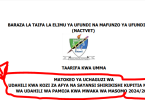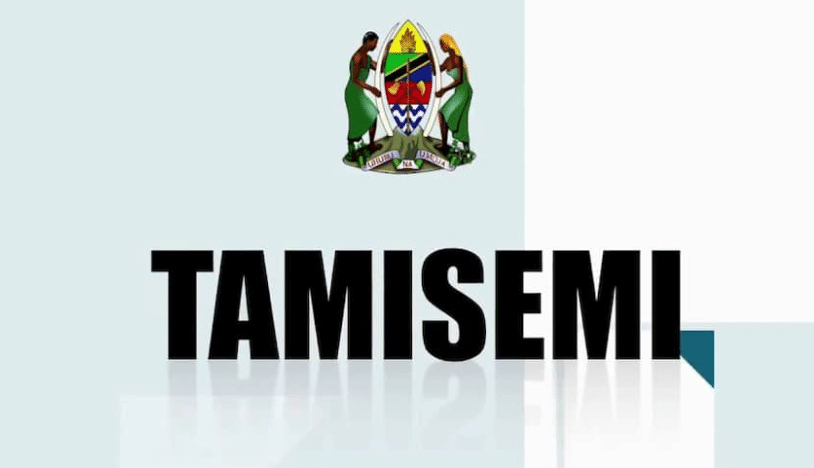UNISA College of Economic & Management Sciences;- As the largest provider of business education in Africa and one of the largest in the world, Unisa’s College of Economic and Management Sciences makes a considerable contribution to the provision of high-level staff to the private and public sector.
Currently some 70 000 students enrol for the college’s formal qualifications and 30 000 for short learning programmes annually. One out of every four BCom degrees awarded by South African universities go to students from CEMS and on a postgraduate level almost half of the honours degrees and 30% of the master’s and doctoral degrees were awarded to this College’s students over the past five years.
UNISA College of Economic & Management Sciences
To establish the relevance and usefulness of its degrees and course the college constantly conducts intensive research in the private and public sectors. This is done to ensure lifelong learning opportunities for all students through articulation from certificates up to advanced postgraduate studies and even doctoral level.
Recognition
The qualifications of the college are widely recognised. A recent study by the Bureau of Market Research found 86% of employers employed CEMS graduates because of the quality of their qualifications.
Eighty per cent of employers indicated that the CEMS qualifications are of good quality and credible. They were positive about the qualities and skills cultivated through the ODeL nature of graduates’ studies and said CEMS graduates generally “hit the ground running” within six months of employment.
Learn wherever you are – with support.
Distance learning offer students the opportunity to study while they work and gain experience. Wherever there is Internet, they can study. This doesn’t mean they have to face the challenges of distance learning alone.
Support is offered by lecturers, but also other services offered by Unisa and the college. The online learning portal, or virtual campus, called myUnisa is the most important. Students also have access to online discussion forums where they can chat to other students and their lecturers. Content specialist e-tutors are also online to provide assistance and students have access to career and study counsellors to guide them on their learning path.
Distance learning offers great opportunities for lifelong learning as well as upskilling for short term needs.
The objective of the College of Economic and Management Sciences is to provide relevant and functional qualifications of a high standard, quality tuition and a professional caring and valued customer service to all its stakeholders.
Teaching and research are offered through nine departments in three schools.
Research that matters
CEMS is committed to identifying African solutions to ensure that the college becomes a leading role player and producer of research in identified strategic niche areas on the African continent.
In an effort to focus the research activities, the College has identified a number of research niche areas and put several structures in place to motivate and support staff. These include financial assistance from the College Research Committee and research related assistance provided by the College of Graduate Studies and Research. CEMS researchers have access to several funding opportunities and support programmes within and outside the university.
Partnerships
Building mutually beneficial relationships with the community in which it functions is an important objective. By focusing on local problems, the college can contribute to solving universal problems. While the college is committed to the education of graduates that can pull their weight in the public and private sector, it is also actively seeking partnerships that enrich the institution’s tuition and research and enhances its footprint in the community.
Qualifications
Formal qualifications
Formal qualifications refer to those qualifications that are subsidised by the Department of Higher Education and Training, and therefore offered under the DHET policies and legislation. The following formal qualifications are offered by the college:
Qualification information for everyone planning to start a new qualification:
- Undergraduate degrees, higher certificates and higher diplomas, and postgraduate certificates
- Honours degrees and postgraduate diplomas
- Master’s & doctoral degrees
Qualification information for successful applicants and re-registering students:
The qualification information for the 2022 registration is not yet available.
Short Learning Programmes (non-formal qualifications)
Short Learning Programmes offered by Unisa focus on “just in time” and “just enough” learning to meet a specific learning need identified by society. This need can focus on enabling access to other Short Learning Programmes or to improve access to the study of formal qualifications at Unisa, or it can address a specific need in the workplace.
Short Learning Programmes can update or broaden skills and knowledge in a specific area to enable life-long learning. In this manner, Short Learning Programmes assist students with their continuing professional development by upgrading their skills and knowledge in newly developed areas or by sharing the results of research.
Recognition of Prior Learning (RPL)
During your lifetime, you will have acquired various skills, competencies and experiences. This learning which may have taken place outside of formal education and training is valuable regardless of where or when it was obtained. You may have acquired skills or knowledge from a combination of training conducted while at work, experience you gained in the workplace, short courses or from community work in a relevant field.
RPL permits you to gain credits within formal certificate, diploma and degree qualifications offered by Unisa based on the level and extent of your knowledge. Your prior learning will be measured against specified prescribed learning outcomes.
Visit www.unisa.ac.za/rpl for more information.


